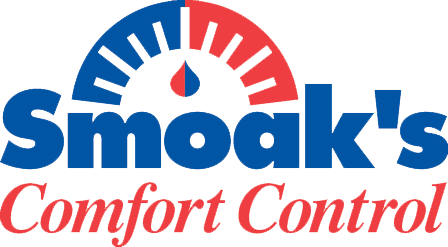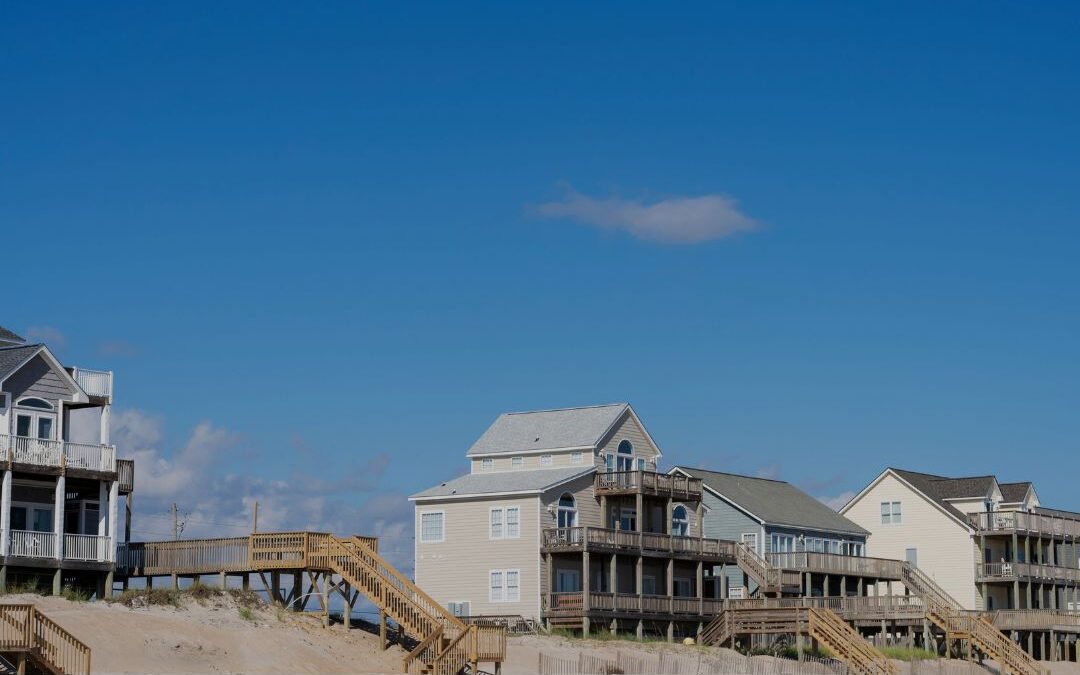Charleston, South Carolina, is known for its stunning coastal views, historic charm, and warm, humid climate. However, living near the ocean also comes with unique challenges for homeowners—especially when it comes to maintaining your HVAC system. The salty air that defines Charleston’s coastal environment can have a lasting impact on your system’s performance, efficiency, and lifespan. Understanding how salt air affects your equipment and what preventive steps you can take is essential to keeping your system running smoothly year-round.
Charleston homeowners have unique HVAC needs due to the coastal environment, and understanding these needs is crucial for ensuring system longevity and comfort.
Understanding Salt Air and Its Properties
Salt air, also known as marine air, is the moist, salty air that forms over coastal regions. Ocean waves release tiny salt particles into the air, which are carried inland by the wind. These microscopic particles eventually settle on outdoor surfaces, including HVAC systems, vehicles, and buildings. Over time, this salt buildup can cause corrosion and degradation, especially on metal components exposed to the elements.
In Charleston’s humid climate, the salt in the air combines with moisture, creating a particularly corrosive environment. When these salt particles accumulate on your HVAC system’s coils, compressor, or housing, they can accelerate rust and oxidation, ultimately reducing the efficiency and longevity of your unit. Both heating systems and cooling systems are susceptible to salt-induced corrosion and efficiency loss, making regular maintenance essential for reliable performance.
Why HVAC Systems are Vulnerable in Coastal Areas
Your HVAC system works hard to circulate air and maintain comfort, but it’s also one of the most exposed systems in your home and business. Outdoor components—especially the condenser and coils—are constantly subjected to the salty coastal breeze.
Salt air can quickly corrode metal parts, reducing performance. The coils, which play a critical role in the heat exchange process, can become pitted and weakened. Compressors may also struggle under the added strain, and electrical connections can degrade over time. Without proper protection, your system may require replacement sooner than expected, so it’s important to know when to replace components to avoid costly downtime for homeowners and business owners alike.
Common HVAC Problems Caused by Salt Air
The effects of Charleston’s coastal environment on HVAC systems are gradual but relentless. Some of the most common issues include:
- Reduced Efficiency: Corrosion and buildup on the coils prevent proper heat transfer, forcing your system to work harder and consume more energy. This decreases energy efficiency and increases utility bills.
- Component Wear and Early Failure: Salt and moisture accelerate wear on the compressor, fans, and other critical components, often leading to premature replacement. Salt exposure can also lead to frequent repairs, especially in air conditioner units, which are particularly vulnerable to corrosion and breakdowns.
- Frequent Maintenance Needs: HVAC systems in coastal areas require more frequent cleaning, inspections, and tune-ups than those in inland regions. Cooling systems, in particular, require more frequent attention in coastal environments to maintain efficiency and extend their lifespan. Regular hvac services are essential to maintain indoor air quality and ensure the system continues to operate reliably.
Indoor Air Quality Concerns in Coastal Homes
Living in a coastal city like Charleston, SC, brings unique indoor air quality challenges that every homeowner should consider. The region’s high humidity can create the perfect environment for mold growth, musty odors, and poor air circulation, all of which can negatively impact your family’s health and comfort. These issues are especially concerning for those with allergies or respiratory conditions, as excess moisture and airborne pollutants can exacerbate symptoms.
A properly maintained HVAC system is your first line of defense against these indoor air quality problems. By circulating air, removing excess moisture, and filtering out dust and allergens, your HVAC system helps maintain a healthier indoor environment year-round. Regular maintenance services, such as duct cleaning and timely filter replacements, are essential to keep your system running efficiently and to ensure cleaner air throughout your home.
Investing in energy-efficient HVAC systems, like modern heat pumps, can further improve indoor air quality while helping you save money on energy bills. Heat pumps provide both heating and cooling, making them a smart choice for Charleston’s variable climate. Working with a reputable HVAC contractor ensures that your new HVAC system is properly installed and maintained by certified technicians.
It’s also important to remember that plumbing services play a role in indoor air quality. Leaks, water damage, and poor drainage can lead to mold growth and compromise the air you breathe. A comprehensive home service approach—combining HVAC and plumbing maintenance—can help prevent these issues and protect your investment in the long run.
How to Protect Your HVAC System from Salt Air Damage
Preventing salt-related damage requires a proactive approach. Here are several proven strategies:
- Regular Cleaning and Servicing: Schedule professional HVAC services at least twice a year to remove salt residue and inspect for corrosion. Routine maintenance services help extend the lifespan of your system and improve energy efficiency.
- Use Corrosion-Resistant Materials or Coatings: Installing coils and components coated with anti-corrosive materials provides an extra layer of protection against salt exposure. Professional installation and expert installation services are essential to ensure these materials are properly applied and integrated for maximum effectiveness.
- Install Protective Covers: Consider installing a ventilated cover for your outdoor unit to reduce direct contact with salt air without restricting airflow. This simple addition can make a big difference in protecting your investment.
Importance of Local Expertise: Hiring a Charleston, SC HVAC Specialist
Charleston, SC, HVAC professionals understand the unique environmental challenges posed by salt air and high humidity. Local expert technicians have experience dealing with corrosion, component replacement, and energy-efficient upgrades tailored for coastal homes. Their team of skilled technicians takes great pride in their work and is recognized in the industry for their expertise and commitment to excellent customer service.
They can recommend the right equipment and service intervals to keep your system performing optimally year-round. Coastal homes often benefit from quarterly inspections or cleanings to ensure their HVAC systems remain reliable and maintain excellent indoor air quality.
Signs You May Already Have Salt Air Damage
Recognizing the early signs of salt-related wear can save you from costly replacement later on. Look out for:
- Visible Rust: Check for rust or discoloration on your outdoor unit’s casing and coils.
- Decreased Cooling Performance: If your cooling capacity drops or your system struggles to reach desired temperatures, corrosion may be affecting performance.
- Unusual Noises or Frequent Breakdowns: Corroded parts and failing components can cause grinding or rattling noises and frequent service calls.
If you notice these signs, contact local Charleston, SC HVAC experts immediately for inspection and possible replacement options, including evaluating whether replacing damaged components is the best solution. Schedule a service call to ensure prompt attention to your needs as a valued customer.
Long-Term Strategies for Salt Air Prevention
In addition to regular maintenance, homeowners can take long-term steps to minimize damage from Charleston’s salt-heavy environment:
- Invest in Sealed Systems: A sealed hvac system offers superior protection by reducing the amount of salty, moist air that can enter and corrode components.
- Landscaping as Natural Barriers: Planting shrubs or trees near your outdoor unit can help block salt-laden winds while still allowing adequate airflow.
- Upgrade to Coastal-Rated Equipment: Coastal-rated or marine-grade HVAC systems are designed with corrosion-resistant materials and coatings, extending system life and improving reliability. While the upfront cost may be higher, the reduced need for frequent replacement makes this an energy-efficient long-term investment. Financing options are available to help manage the upfront costs of upgrading furnaces, cooling systems, and other HVAC equipment in modern homes.
Prompt service and comprehensive air services are essential for all jobs, from routine maintenance to major upgrades, ensuring your furnaces, furnace, and cooling system operate efficiently and reliably.
Charleston’s salt air may be beautiful to experience, but it’s tough on your HVAC system. Salt and humidity accelerate corrosion, reduce energy efficiency, and can shorten the lifespan of even the best equipment. With consistent HVAC services, regular maintenance, and advice from local expert technicians, you can keep your system reliable, energy-efficient, and ready to cool your home year-round. Our commitment to customer satisfaction means customers can always rely on our AC services for dependable comfort and peace of mind.
Don’t wait for salt air to cause costly damage—schedule maintenance services or a system inspection with a trusted Charleston, SC HVAC company today. Protect your comfort, improve indoor air quality, and extend the life of your system with professional care tailored to the Lowcountry’s unique coastal climate.

